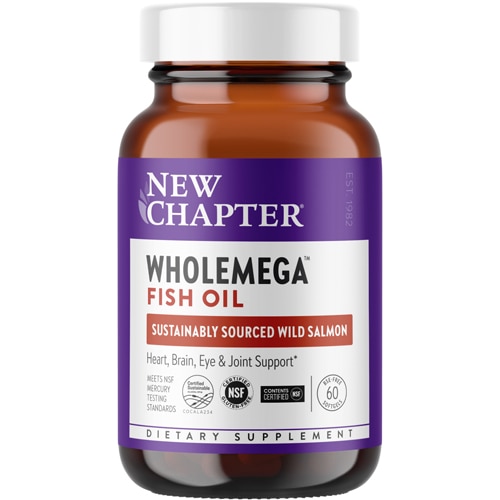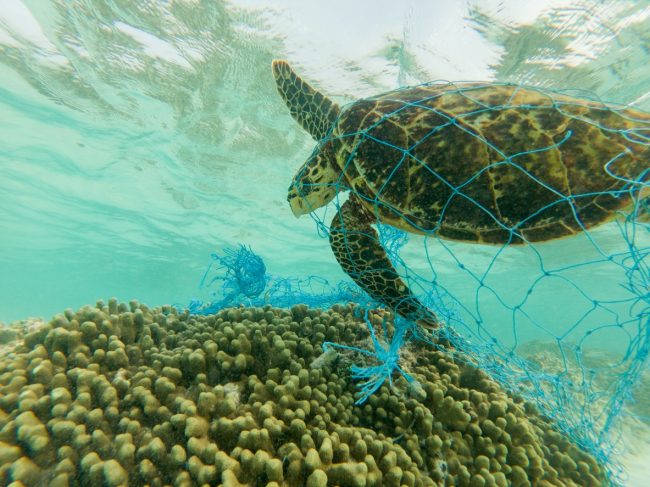Whether it’s World Oceans Day (June 8) or not, there’s always a good reason to help prevent ocean pollution – even if you don’t live near one. Oceans are the liquid heart of our planet. They connect people together, provide a home to thousands of animals, help regulate our climate and generate oxygen for us to breathe. No matter where you are, you can take action to protect this precious resource.
The top ocean offender: plastic pollution
It should come as no surprise that the majority of ocean pollution is plastic. Nine million tons of plastic trash ends up in our oceans every year. More than 1,200 species of animals – including sea turtles, birds, seahorses, dolphins and sharks – are harmed by consuming plastic or getting entangled in it. Habitats are degraded by floating debris and plastic microparticles. Whether it’s on the ocean floor or washed onto shore, plastic releases toxins when it breaks down. These toxins, like bisphenol A (BPA), poison our oceans and atmosphere.
So where is all this plastic coming from?
Mostly, plastic pollution comes from single-use items. People like convenience. Unfortunately, that leads to a lot of throwaway plastic. A cup, a coffee stirrer, a straw or a plastic bag may be handy for a minute – maybe an hour – but it lasts on our planet for another 1,000 years. These lightweight plastics scatter by wind and quickly end up in our oceans, where they take a heavy toll on marine ecosystems.
But there is good news!
Even small changes can help.
7 ways to prevent plastic pollution in the ocean:
1. Remember your reusable bag.
A trillion plastic bags are used (and trashed) every year. Avoid plastic bags at every opportunity! Bring cloth totes to the store and carry a collapsible bag in your purse or backpack, so you’re always ready. Reusable bags make great gifts, too.
2. Insist on refillable bottles.
Single-use plastic water bottles are a big offender when it comes to plastic use and litter. Fortunately there are a ton of BPA-free insulated bottles that keep your water cool (or hot!) for hours. Stash one at work, one at home and one in your gym bag to quickly fill up when you’re on the run.
3. Repurpose before you trash.
Any single-use plastic items you have on hand can be given new life. Pinterest is a library of ideas for repurposing common plastic items. You can make planters and sun catchers from bottles, or weave plastic grocery bags into colorful rugs. You can even turn plastic straw into coasters – a good way to protect the planet and your coffee table!
4. Stop sucking through straws.
Speaking of straws, 500 million straws are used daily. But they are too small to recycle, so they end up as pure pollution. Find ways to go without, such as pouring bottled drinks into a glass – or skipping bottled drinks completely. When eating out, ask your server to hold the straw. If you really need one for sipping your smoothie or preventing spills, choose a reusable metal or glass straw. Paper straws are also a better choice over plastic.
5. Skip the stirrers.
Do you make a coffee run every morning? You probably add cream and sugar, and then give your cup a good mix. But all those plastic stirrers just go right into the waste bin. On your next trip to the breakroom, be mindful of how you prepare your coffee. Start carrying a metal or compostable spoon with you or choose stir sticks made of wood instead of plastic.
6. Recycle more – a lot more.
While it’s best to avoid plastic, you sometimes can’t help but use it. When you do, take the time to recycle that piece of plastic. The recycling rate of all plastic in the U.S. is only nine percent, compared to Europe at 30 percent and China at 25 percent. We can do better!
7. Opt for sustainable seafood.
According to National Geographic, “sustainable fishing guarantees there will be populations of ocean and freshwater wildlife for the future.” Examples of sustainable fishing include cast-net, spearfishing and hook-and-line fishing. If you consume fish or a fish oil supplement, look for companies that use sustainably caught practices and are certified by a third party.
Remember: the health of the world’s oceans is linked to the health of the whole planet, and to each of us as living beings on this planet. Implementing even these small practices can help turn the tide on some troubling environmental problems. Don’t underestimate your power to make a change!





